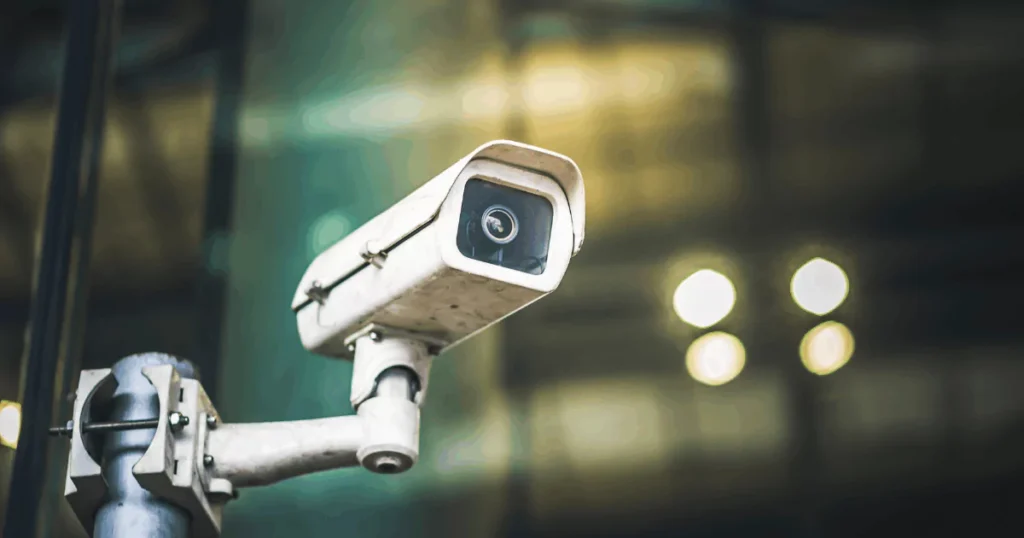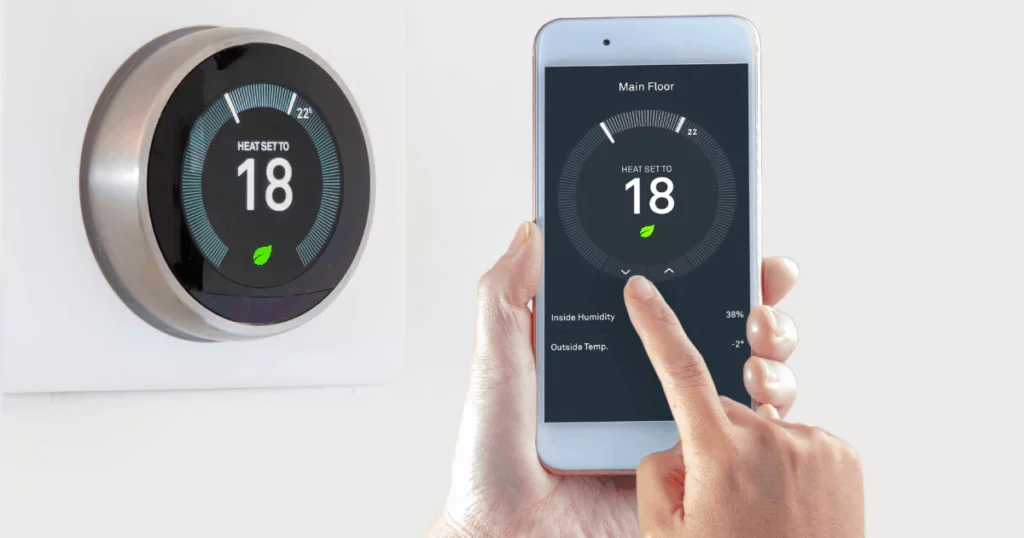Imagine this: A quiet evening at home, and your doorbell rings. You’re not expecting anyone, so you check your phone. The live camera feed shows a stranger standing on your porch. Within seconds, your security app analyzes their face, compares it to a database, and flags them as unfamiliar. You receive a subtle alert: “Unknown person detected.” This highlights the Role of Artificial Intelligence in Home security—an innovation that doesn’t just watch but learns, adapts, and protects proactively.
For decades, home security was reactive. Alarms sounded after a break-in, cameras recorded events that had already happened, and responses were often delayed. Now, the Role of Artificial Intelligence in Home security flips this narrative. Systems no longer wait for threats to strike—they anticipate, analyze, and prevent them before they escalate.

Role of Artificial Intelligence in Home Security
The Role of Artificial Intelligence in Home security is more like a lighthouse: it continuously scans the surroundings, identifies potential dangers, and guides you to safety.
Security That Thinks for Itself
The Role of Artificial Intelligence in Home Security is revolutionizing how we approach safety, shifting from reactive to proactive measures. Unlike traditional systems that only alert you when triggered, AI-powered security continuously monitors and evaluates your environment. Surveillance cameras now go beyond simple video recording; they analyze footage in real time, distinguishing between potential threats and everyday occurrences.
The Role of Artificial Intelligence in Home Security helps to reduce false alarms by teaching the system to recognize the size, movement, and shape of objects. This intelligent processing allows it to differentiate between a harmless animal and a real intruder. With AI-powered motion detectors, your home becomes more secure as it intelligently identifies unusual activity while ignoring harmless movements.
The Role of Artificial Intelligence in Home Security provides peace of mind, offering timely and actionable alerts and guiding homeowners to safety without overwhelming them with unnecessary notifications. This smarter, more efficient approach ensures that your security system is not only more reliable but also more intuitive, adapting to your environment in real time. As AI continues to evolve, the future of home security looks more intelligent, personalized, and secure than ever before.
Personalized to Your Life
The Role of Artificial Intelligence in Home Security goes beyond traditional systems by offering personalized protection tailored to your daily routines. AI-enabled security systems can learn your habits, remembering details like when you usually lock the back door but sometimes forget to secure the garage. Through this constant learning, the system adapts to your needs, ensuring your home remains safe even when distracted. For example, if your garage light stays on for a long time, the system will detect this anomaly and alert you, preventing potential security risks.

The Role of Artificial Intelligence in Home Security provides convenience and awareness that traditional systems can’t match. It acts like a trusted friend who knows when things are out of place and notifies you accordingly. With AI, you no longer have to check every lock and light every night manually; the system does it for you. This proactive approach helps you feel more secure and in control, even from a distance. The Role of Artificial Intelligence in Home Security ultimately creates a safer living environment by constantly monitoring and adapting to your specific needs. With AI at the helm, you can trust that your home is always being watched, even when you’re not paying attention.
Eyes That Know What They’re Seeing
The Role of Artificial Intelligence in Home Security has revolutionized how we think about surveillance. Traditional cameras were once passive witnesses, simply recording footage without real-time analysis. However, with AI integration, these systems are now active participants in home security, capable of making intelligent decisions. For instance, when a delivery driver approaches, AI-powered cameras can recognise the uniform, assess the behaviour, and deduce that it’s likely a routine package drop-off. This enables the system to send a helpful notification, such as, “Delivery person at the door.”

On the other hand, if someone is observed lingering near a window or acting suspiciously, the Role of Artificial Intelligence in Home Security becomes critical. The system can flag the behaviour as abnormal and raise an alert, preventing potential threats before they escalate. By constantly learning from patterns, AI ensures that the surveillance system evolves with time, adapting to new threats and scenarios. This proactive approach highlights the growing importance of AI in home safety. As AI advances, the Role of Artificial Intelligence in Home Security will only become more essential in safeguarding our homes from a wide range of risks.
Layers of Defense
The Role of Artificial Intelligence in Home security doesn’t stop at individual devices—it creates a connected ecosystem. Picture your security system working seamlessly with smart lights, locks, and thermostats. When you leave for work, saying “activate security” locks doors, adjusts the temperature, and arms the alarms, creating a unified layer of protection.
This collaboration showcases how the Role of Artificial Intelligence in Home security leverages technology to secure your home and simulate activity when you’re away, deterring potential threats effortlessly.
A Quiet Hero
Consider a scenario: It’s late at night, and an unfamiliar figure approaches your backyard. The Role of Artificial Intelligence in Home security shines here. Instead of waiting for a window to break, the system detects unusual movement, activates floodlights, and plays a loud message: “This property is monitored. Leave immediately.”
Here’s a shortened version of the points highlighting the role of AI in home security:
- Real-time Detection: AI analyzes movement patterns and identifies potential threats immediately.
- Proactive Response: Triggers alarms, floodlights, and warning messages to deter intruders before they escalate.
- Smart Sensors: Integrates with cameras and motion detectors to differentiate between real threats and false alarms.
- Instant Notifications: Sends alerts to homeowners and authorities when a threat is detected.
- Predictive Security: Analyzes data to predict and prevent potential security risks.
- Automated Surveillance: Tracks movements and provides clear video feeds for monitoring without human intervention.
- Learning Over Time: Improves detection accuracy by adapting based on past incidents.
- Smart Home Integration: Works with smart devices like locks and cameras for a comprehensive security system.
- Peace of Mind: Constant monitoring without requiring homeowner attention.
- Cost-effective: Reduces the need for security personnel and minimizes potential damage.
AI enhances home security by providing proactive, real-time, and automated protection.
Challenges on the Path to Perfection
Despite its benefits, Artificial Intelligence’s role in Home security systems isn’t without challenges. For instance, facial recognition might occasionally misidentify someone, causing unnecessary alerts. These systems improve over time, but accuracy isn’t always perfect. Additionally, privacy concerns arise with the Role of Artificial Intelligence in Home security, as these systems collect significant amounts of data. Ensuring this data is securely stored and used ethically is essential, much like safeguarding a valuable diary.
A Worthy Investment
The Role of Artificial Intelligence in Home security often comes with a higher upfront cost, but its long-term benefits outweigh the expense. With its ability to prevent incidents, minimize false alarms, and adapt to your needs, investing in AI-powered security is like upgrading from a basic car to one with modern safety features—it’s an investment in peace of mind.
The growing accessibility of AI technology ensures that even mid-range systems offer features that demonstrate the Role of Artificial Intelligence in Home safety, making them increasingly affordable and indispensable.
A Future of Predictive Protection
Looking ahead, the Role of Artificial Intelligence in Home security is poised to become even more proactive. Systems may soon analyze local crime trends, suggesting specific actions to enhance your home’s safety.

For instance, if break-ins are reported nearby, your AI system might recommend additional settings or even schedule automated adjustments. Artificial Intelligence’s role in Home security could evolve into a dynamic force, preparing homes for external changes as naturally as the weather shifts.
Final Thoughts
The Role of Artificial Intelligence in Home security has transformed how we protect our spaces. No longer static and reactive, AI-powered systems think, learn, and adapt to keep homes safer. By embracing the Role of Artificial Intelligence in Home protection, we’re not just adopting technology; we’re reimagining safety as intuitive, personal, and proactive—a true revolution in defining a secure home.

